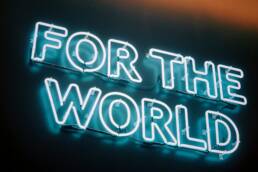Understanding and addressing why women shield exhaustion
Relentless notifications. Round-the-clock digital overload. Zoom burnout. The never-ending mental load of keeping work, family, and life running smoothly. The expectation to be always ‘on’.

One contributing factor is the dual burden many women carry in undertaking domestic chores alongside professional work. The Office for National Statistics reported in 2022 that women undertake a disproportionate share of unpaid household labour, averaging 60% more than men. This additional workload exacerbates fatigue and stress, making it crucial to address both professional and domestic spheres when considering women’s well-being.
Moreover, societal norms often discourage women from expressing tiredness or seeking help, leading them to “power through” exhaustion. This tendency not only affects their health but also perpetuates the cycle of unrecognised fatigue.
Breaking the cycle of burnout
Workplaces can play a pivotal role in breaking this cycle by fostering environments where open discussions about well-being are encouraged and support systems are in place.
Mentorship emerges as a valuable resource in this context. Connecting with mentors provides women with guidance, support, and a platform to share experiences. Such relationships can offer practical advice and emotional support, helping to navigate challenges and reduce feelings of isolation, particularly in situations where women might face additional workplace pressures or systemic barriers.
For solopreneurs and those unable to afford specialised services, building a personal advisory network becomes essential. Engaging with peers, joining professional groups, or participating in community forums can facilitate knowledge exchange and provide diverse perspectives. These connections not only enhance business acumen but also offer emotional support, which is vital in managing stress and preventing burnout.
Recognising and addressing the unique challenges women face around fatigue and burnout is crucial. By fostering supportive communities, promoting open dialogues, and facilitating mentorship opportunities, we can create environments where women’s well-being is prioritised, enabling them to thrive both personally and professionally.
But breaking the cycle of hidden fatigue isn’t just about external support — it’s also about women recognising their own limits and making the choice to respond. That means tuning into what our bodies are telling us, acknowledging when rest is needed, and pushing back against the pressure to always ‘power through’. Prioritising well-being isn’t a luxury—it’s a necessity. And the more we advocate for ourselves, the more we reshape the expectations placed upon us.
 If you have ever wondered just how tired you really are, then NASA has developed a reaction time test used by astronauts and pilots to measure fatigue levels before taking on critical tasks.
If you have ever wondered just how tired you really are, then NASA has developed a reaction time test used by astronauts and pilots to measure fatigue levels before taking on critical tasks.
Their Psychomotor Vigilance Task (PVT) app (only on Apple iOS) lets you check your response speed and cognitive alertness.
And if it’s good enough for space travel, it’s good enough for the morning school run or back-to-back client calls. Maybe it’s time to run your own pre-launch check: are you firing on all cylinders, or should you be dumping some of the payload before takeoff? 🚀
References:

At Lumin, we believe in the power of collaboration and shared knowledge. That’s why we’re working to create a trusted space where women solopreneurs can connect, share experiences, and access the collective wisdom of a multi-generational network. Whether you’re just starting out or pivoting into new opportunities later in your career, we’re here to support your journey.
Stay tuned as we continue shaping our vision for a collaborative, empowering community designed by and for women who want to build their businesses together. Keep updated and inspired : let us know you’re interested
#WomenMentoringWomen #WomenandBurnout #Solopreneurs #WomenInBusiness #Entrepreneurship #WomenSupportingWomen #SmallBusinessTips #CollaborativeEntrepreneurship
Author

This is LUMIN
Editorial from our writers and contributors towards our common goal: raising awareness of the issues that matter to women who want to drive greater success for all, in the world of work and in business
Related Posts
rethinking success: women, business & purpose
Can women lead the way in redefining business success? Not just as participants…
07/03/2025Purpose driven,redefining success,Business for good,RSA,Professor SIr John Kay,Royal Society for the Arts,businessmission,entrepreneurs,women in business
the work-life balancing illusion
We talk a lot about work-life balance, but for many women, the ‘life’ side of…
07/03/2025life,wellbeing,careerswomen entrepreneurs,work-life balance,burnout,solopreneurship,gender equity,domestic load,productivity,sustainability,multitasking myth
the power of saying no
Just because you can, doesn’t mean you should. For many women, saying no…
27/02/2025business,wellbeing,careerssaying no,setting boundaries,time management,avoiding burnout,personal development,self employment





It’s a typical day for many women, particularly if they are juggling multiple roles of professional responsibilities, family duties, and personal commitments. This constant balancing act often leads to fatigue or even exhaustion, but recent research suggests that women’s tiredness frequently goes unnoticed.
A study by NASA revealed that observers tend to underestimate women’s fatigue levels while overestimating men’s. And the researchers suggest the discrepancy may stem from societal expectations and behavioural differences, as women often maintain positive and sociable outward appearances, despite feeling exhausted.
The implications of this underestimation are significant. When fatigue goes unrecognised, women may not receive the support or rest they need, potentially leading to burnout.
The invisible weight of exhaustion
Burnout — a state of emotional, physical, and mental exhaustion caused by prolonged stress — is alarmingly prevalent among women. A 2023 study by the Chartered Institute of Personnel and Development (CIPD) found that women in the UK are more likely than men to experience work-related stress and burnout.